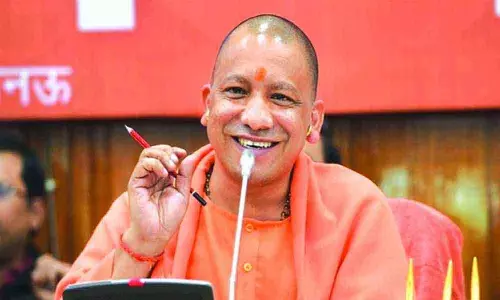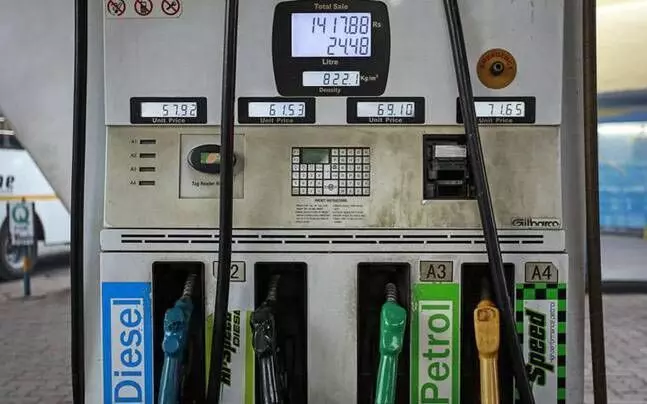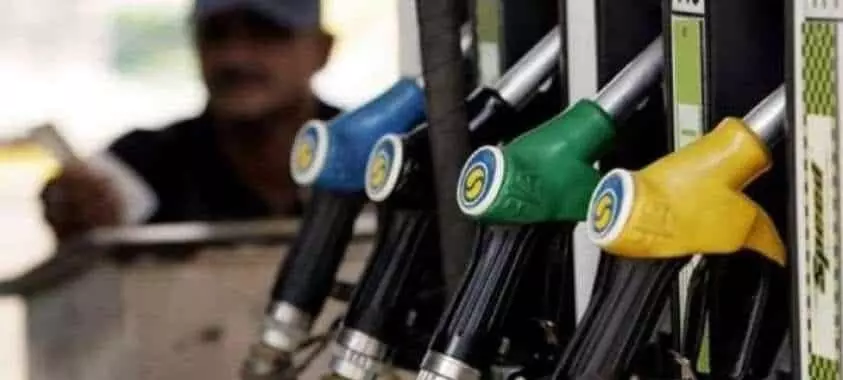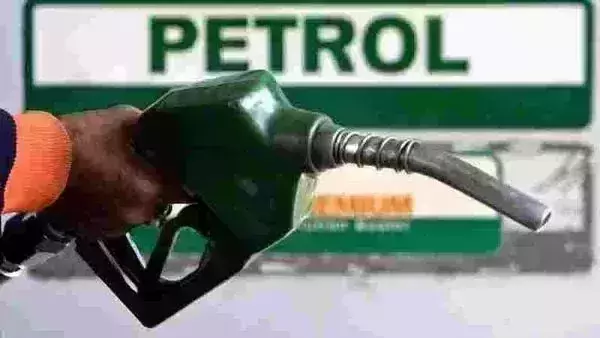
The right and wrong of fuel price numbers
text_fieldsNothing seems to be there for celebration or relief in the Central government's nominal concessions in the price of petrol and diesel, declared as a Diwali gift. It is after one and a half years of steady and heavy hikes in fuel prices that the excise duty of petrol and diesel have been reduced by Rs 5 and 10 respectively. Even as the spokespersons of the Central government term them as gift, every one knows that the reality is something different. In addition to the heavy blow from Covid and lockdown, with the shooting up of fuel prices, it is the people who were thrown into dire straits came out in public protests and the backlash suffered by the BJP in bypolls in several states that forced the BJP government to bring down petroleum product prices on urgent basis. And in a few months time, states including UP are going to have assembly elections too. The sangh parivar would well have realised that it will be an uphill task to face an electorate reeling under the heat of the high fuel prices. Therefore, the reduction in duties can be seen only as a ploy to pacify the people on a short-term basis. Therefore, it would be reasonable to presume that even the nominal relief offered now is bound to be temporary.
Many have read into the tax relief offered now a game of deceit and political gimmick that lies hidden. Reductions made are on the excise duty of Rs 32.90 for a litre of petrol and Rs 31.80 for diesel. This is when the international oil price has touch USD 80 per barrel. Three years ago, when the price was about this level, the excise duty was below Rs 18 per litre and diesel price then was Rs 75 per litre. In other words, in a matter of five years, the central levy alone increased by Rs 15. In the meantime, crude price had touched even a low of 30 dollars per barrel. Naturally, at such times, fuel prices in the country should have been brought down. But, except for marginal reductions on rare occasions, the graph of fuel price was always seen shooting north. That being the case, what happened now can only be described as a stemming of that rise. Even then, one cannot lose sight of the fact that the Central action has caused some complications. The Central government suggestion that states should make a corresponding cut in state taxes, is easier said than done. Of course, states ruled by the NDA have complied with that suggestion. But this suggestion has to be seen as directed at Opposition parties including the Congress who have held protests at fuel price hikes. As such, the Central move is a discernible political fiat to put the blame entirely on the states. The sangh parivar is touting the logic on the basis that the Centre has reduced taxes, but the states, especially the Opposition-ruled states have not done that. An example of using this rationale is the protest over the last two days by the BJP's Kerala unit which aims at selling the same logic.
However, the states too, albeit recognising this ploy of the Centre, could very well make this tax relief possible. States like Tamil Nadu and Chhattisgarh have moved in that direction. Unfortunately, Kerala, who should have followed that path, is turning its back to similar proposals. The Kerala government, and its political leadership in the CPM, are of the firm stand that there cannot be any relief in fuel taxes charged by the state. And what finance minister KN Balagopal said before the mediapersons the other day, was its case and logic for such a stand. His contentions can be summarised like this: one, when the Centre reduces excise duty, the state's price also will come down proportionately, and it has actually happened too. Two, the states where taxes have been reduced are those where levies had been hiked in the background of Covid and other factors, but Kerala has not raised it even once in the last six years; therefore there is no need to reduce it now. The minister has also other justifications to cite, mostly against the current Opposition in the state, that ever since the power to determine petroleum prices was passed to the oil marketing companies, the previous UDF government in the state had raised taxes over a dozen times.
Even if these facts are taken at face value, the undeniable fact is that the people have been suffering under a severe 'tax terrorism' for years. The current minister, who argues that the Oommen Chandy government made unjustifiable tax hikes, has to own up that the 'injustice' still exists almost at the same level. And can the minister deny the fact that when the Centre squeezed the people in the name of excise duty all these years, a share of it had enriched the state treasury too? It is true that compared to other states, Kerala's fuel tax rate is lower. Equally true is the Centre's unfairness to the state in many ways like not granting funds and not transferring GST share arrears. These are to be assessed as a disruption of our federal structure by a fascist regime and protests are to be mobilised on that basis. Instead of that, if the left government also follows the sangh parivar 'model' of 'tax terrorism' of putting all the burden on the people's shoulders, then there cannot be a worse paradox than that.



























